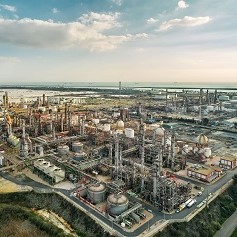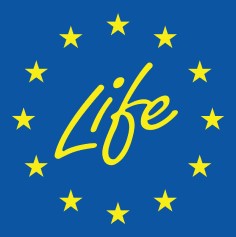The circular economy is one of the crucial levers of the energy transition and critical to achieving the objectives of our 2030 'Positive Motion' strategy.
At the same time, it contributes to the achievement of the Sustainable Development Goals (SDGs) of the United Nations.
For this decade, we have set ambitious commitments on the circular economy.
We will increase the circularity of our waste by 50% by 2030
This means minimizing, recycling, and recovering additional 8,000 tons in our large industrial centers in Andalusia.
To achieve this, we are relying on the use of new technologies, waste co-processing projects, and public-private partnerships through industrial symbiosis involving multiple sectors.
All this to transform our production model into a more sustainable and circular one.
We will increase the share of renewable and circular raw materials in our Energy Parks to 15%
Through our zero-waste approach and our sustainable solutions, we are progressively replacing traditional fossil sources with renewable and recycled raw materials.
In this way, we will use 2.8 million tons of raw materials in our Energy Parks by 2030, 75% of which will be second-generation (2G) and other waste that would otherwise be discarded.
Our goal is for Cepsa to be a leader in the production of biofuels from 2G feedstocks.
An example of this type of solution is the production of SAF from agricultural waste produced by Cepsa, which more than 220 flights used to take off from Seville airport during the month of December 2022, thus avoiding the emission of more than 200 tons of CO2.
We are committed to the circular economy
At Cepsa, we are committed to the circular economy is an economic and production model that aims to curtail the use of raw materials, water, and energy in the production of goods and services, minimizing waste.
In this way, we can maintain the value of products, materials and resources in the economy for as long as possible, extending their service life and imitating nature, where all elements are used and reused.
This circular model also can reduce emissions and the use of scarce natural resources. It leads to cost savings, stimulates innovation, and favors job creation.


Together with Saint-Gobain Weber we will recycle 1,000 tons of waste per year and give a second life to the catalysts we use in our Energy Parks. This waste will be used by Saint-Gobain Weber as raw material in the manufacture of mortars used in different technical uses.
Find out more
Our 'Life Superbiodiesel' project has been recognized for its high innovation potential with the 'Key Innovator' seal of the European Commission's 'Innovation Radar' program. This research advances advanced biofuel production from animal waste, reducing waste, and promoting the circular economy.
Find out more


